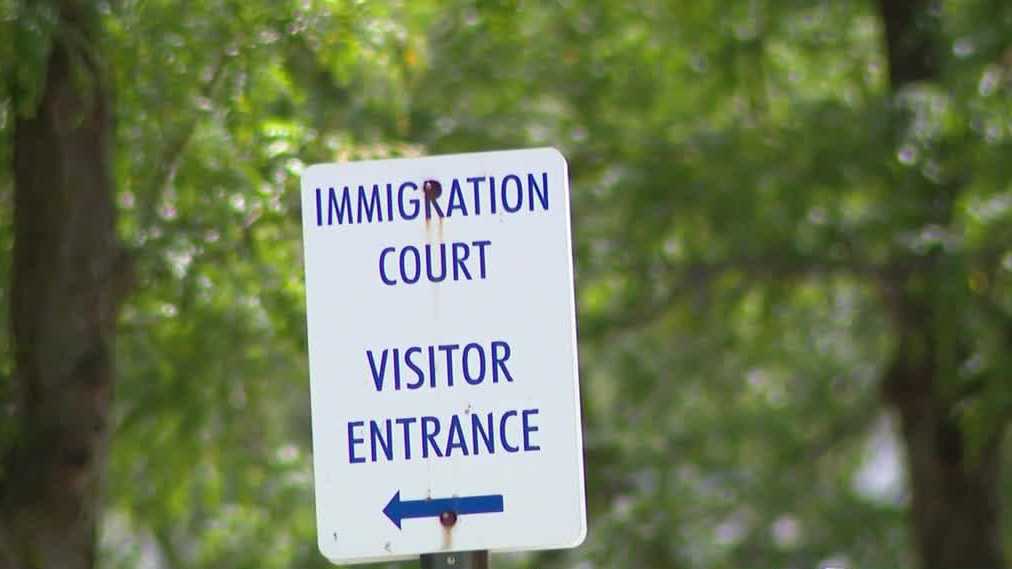The landscape around immigration is shifting again under the Trump administration.Last week, U.S. Citizenship and Immigration Services released a memo bringing back “neighborhood investigations,” a method once used to evaluate an immigrant’s moral character. The practice dates back to the 1980s and was discontinued in 1991.Now, immigration attorneys are working to understand what its return could mean for their clients.“It’s not well-defined, like, what the discretion is,” Omaha immigration attorney Brian Blackford said. “Even with this policy memo, we don’t exactly know all the considerations.”According to the USCIS memo, investigators are permitted to talk with people living near an applicant’s residence and place of employment. Blackford said that raises concerns.“Is that going to result in them being denied a citizenship because a neighbor doesn’t like them? We don’t know, like, what this entails,” Blackford said.The memo states the practice is meant to improve background checks during citizenship applications. Blackford said it is something he has never seen in his decades-long career.“They would do that to make sure there’s no marriage fraud, but that would be the extent of USCIS investigators looking into somebody that has a pending application before the agency,” he said.The agency memo said neighborhood investigations began in 1981 to better determine a person’s moral character and eligibility for citizenship. The practice stopped in 1991.“They just made the decision to stop doing that and to instead just go off of people’s biometrics, and run their background that way to make the process more streamlined,” Blackford said.Blackford said reinstating the practice could discourage immigrants from applying.“This can have some really chilling effects on speech and on applying for citizenship altogether,” he said.He added that the policy is impacting immigrants seeking status through legal means.“These are people that have been lawful permanent residents for either 3 or 5 years minimum,” Blackford said.In a statement to KETV, USCIS said the agency is ensuring “aliens are being properly vetted” and added the directive will “enhance these statutorily required investigations.”NAVIGATE: Home | Weather | Local News | National | Sports | Newscasts on demand |
OMAHA, Neb. —
The landscape around immigration is shifting again under the Trump administration.
Last week, U.S. Citizenship and Immigration Services released a memo bringing back “neighborhood investigations,” a method once used to evaluate an immigrant’s moral character. The practice dates back to the 1980s and was discontinued in 1991.
Now, immigration attorneys are working to understand what its return could mean for their clients.
“It’s not well-defined, like, what the discretion is,” Omaha immigration attorney Brian Blackford said. “Even with this policy memo, we don’t exactly know all the considerations.”
According to the USCIS memo, investigators are permitted to talk with people living near an applicant’s residence and place of employment. Blackford said that raises concerns.
“Is that going to result in them being denied a citizenship because a neighbor doesn’t like them? We don’t know, like, what this entails,” Blackford said.
The memo states the practice is meant to improve background checks during citizenship applications. Blackford said it is something he has never seen in his decades-long career.
“They would do that to make sure there’s no marriage fraud, but that would be the extent of USCIS investigators looking into somebody that has a pending application before the agency,” he said.
The agency memo said neighborhood investigations began in 1981 to better determine a person’s moral character and eligibility for citizenship. The practice stopped in 1991.
“They just made the decision to stop doing that and to instead just go off of people’s biometrics, and run their background that way to make the process more streamlined,” Blackford said.
Blackford said reinstating the practice could discourage immigrants from applying.
“This can have some really chilling effects on speech and on applying for citizenship altogether,” he said.
He added that the policy is impacting immigrants seeking status through legal means.
“These are people that have been lawful permanent residents for either 3 or 5 years minimum,” Blackford said.
In a statement to KETV, USCIS said the agency is ensuring “aliens are being properly vetted” and added the directive will “enhance these statutorily required investigations.”
NAVIGATE: Home | Weather | Local News | National | Sports | Newscasts on demand |
